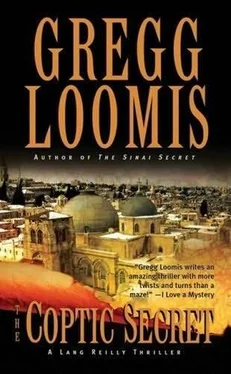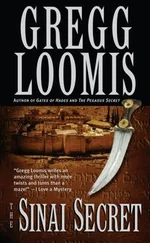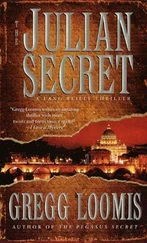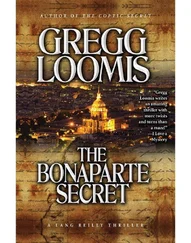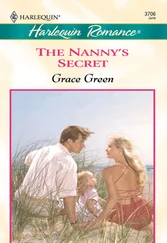Gregg Loomis - The Coptic Secret
Здесь есть возможность читать онлайн «Gregg Loomis - The Coptic Secret» весь текст электронной книги совершенно бесплатно (целиком полную версию без сокращений). В некоторых случаях можно слушать аудио, скачать через торрент в формате fb2 и присутствует краткое содержание. Жанр: Триллер, на английском языке. Описание произведения, (предисловие) а так же отзывы посетителей доступны на портале библиотеки ЛибКат.
- Название:The Coptic Secret
- Автор:
- Жанр:
- Год:неизвестен
- ISBN:нет данных
- Рейтинг книги:4 / 5. Голосов: 1
-
Избранное:Добавить в избранное
- Отзывы:
-
Ваша оценка:
- 80
- 1
- 2
- 3
- 4
- 5
The Coptic Secret: краткое содержание, описание и аннотация
Предлагаем к чтению аннотацию, описание, краткое содержание или предисловие (зависит от того, что написал сам автор книги «The Coptic Secret»). Если вы не нашли необходимую информацию о книге — напишите в комментариях, мы постараемся отыскать её.
The Coptic Secret — читать онлайн бесплатно полную книгу (весь текст) целиком
Ниже представлен текст книги, разбитый по страницам. Система сохранения места последней прочитанной страницы, позволяет с удобством читать онлайн бесплатно книгу «The Coptic Secret», без необходимости каждый раз заново искать на чём Вы остановились. Поставьте закладку, и сможете в любой момент перейти на страницу, на которой закончили чтение.
Интервал:
Закладка:
IV.
Buyukada
Princes' Islands
Sea of Marmara
Turkey
A Week Later
The call of the muezzin from the balconies of a dozen minarets were clearly audible across the water even though the mosques themselves were no more than needles against the silhouette of the shrinking Anatolian shoreline. The electronic enhancement of the five-times-a-day summons to prayer had increased their range if done little to give the flesh-creeping wails any melodic quality.
From his position at the stern of the ferry, Lang had watched as the ship passed Seraglio Point with its Topkapi Palace, home of the Ottoman sultans. And what a view those rulers of the near east for four and half centuries had enjoyed: the mouth of the Golden Horn to the Bosphorus, separating Europe from Asia. One city, two continents. Idly, he noted a Russian supertanker, high in the water as it made its way north back to the oil fields of the Black Sea.
He recalled the international friction these crafts had caused for years. The Russians, unwilling to hire a local pilot, would not suffer the oil spill resulting from one of the ships going aground less than a mile from Turkish shores on either side.
The foundation's Gulfstream had deposited Gurt and Lang at the customs house behind the main terminal at Istanbul's Ataturk Airport, where they had purchased visas for sixty dollars (euro or New Turkish lira would have been equally acceptable) and been welcomed to Turkey. As anticipated, there had been no customs. Both Lang and Gurt's weapons were available if needed and the copy of the Book of James was inside his shirt. A taxi, equally ambivalent as to currency, had taken them to Karakoy, the swarming anthill of piers from which ferries departed. Travel by water was Istanbul's preference when possible, avoiding the crowded streets and confining alleyways. Lang had noticed about half the women covered their heads; half of those with gaily colored scarfs, others with the full-length, long-sleeved black dress, their heads and faces covered by the traditional burka from which only the eyes were visible.
"Roaches!" Gurt had hissed, making no effort to conceal her scorn for women submitting to a male-dominated society.
Turkey was about 90 percent Islamic, mostly Sunni. Its constitution, however, mandated a secular government, freedom of religion and abolishing the fez and other religious dress in its universities. It was the only Islamic democracy in the world. This was beginning to slip, bit by bit. The country's new president, devoutly religious-
A tug at his sleeve. "Come see!"
Lang followed Gurt to the bow section just as the ship's whistle announced its arrival. Lang saw white two- and three-story buildings ringing a small harbor sheltering hundreds of small boats, a number of them scooting across the sapphire surface like so many bugs. Towering over the activity were green hills with houses stacked along the edges like merchandise on store shelves.
"I don't see any cars," Lang said.
"Motor vehicles are forbidden," Gurt replied. "Other than police or garbage trucks."
Gurt had read the guidebook. Or she had been here before in her past life during the bad old days of the Cold War on some mission neither of them was eager to discuss. This was Lang's first visit to the former capital of the eastern Roman, Byzantine, then Ottoman empires. These islands took their name, Princes', from the fact that the sixth-century emperor, Justin II, had built a palace here. Later, the scattered monasteries served as a place of banishment for overly ambitious members of the royal family or public officials, frequently in addition to blinding, slicing off a nose, having the tongue cut out or castration.
The Byzantines knew how to ensure neither a person nor his potential heirs would ever become troublesome again.
With the advent of steamboat service from the mainland in the late nineteenth century, the islands' beaches and wooded hills became popular resorts as well as home to a number of expatriates such as Leon Trotsky.
Lang noted a number of horse-drawn phaetons obviously waiting for the ship to dock. Bicycles zipped in and out of both equestrian and pedestrian traffic.
"Hope there's one of those carriages left for us," he said, turning to follow the stream of disembarking passengers.
"A bicycle would do you more good," Gurt teased.
Lang took her hand, leading her between a group of giggling high-school-age girls, none of whom wore scarfs. "Some other time when I have a few less broken bones."
"Perhaps a horse?"
"I try to avoid anything that is both bigger and dumber than I am."
As they stepped off the gangplank, Lang inhaled a potpourri of odors: coffee and baking bread, frying olive oil mixed with the pungent smell of horse dung, all blended with a trace of freshly cooked sweets. He and Gurt were standing in a village of shops, restaurants, small inns and businesses the purpose of which was unclear to anyone who did not read Turkish. Outdoor lokanta, cafés, were filled with customers sipping sweet apple tea from small, hourglass-shaped glasses. The mood, both of those just disembarked and those already there, was one of a holiday. Everyone seemed to be speaking at once.
He could have been standing in the center of a number of beach resorts worldwide.
Suitcase in one hand, Gurt's hand in the other, he shouldered his way through good-natured vacationers to where a pair of well-fed horses were harnessed to one of the carriages. The driver, dressed in jeans and golf shirt, held a sign with Lang's name on it.
Francis, who had arranged the visit to their destination, had thought of everything.
"Monastery of St. George?" Lang asked.
The driver nodded and said something in Turkish, gesturing they should climb in. Lang knew better than to attempt to assist Gurt aboard. She resented any effort, no matter how courtly, that suggested she, as a female, was due any treatment not owed to a man.
Without any perceptible signal from the driver, the horses trotted through the town's streets, hooves playing a syncopated rhythm against the pavement. With no change of pace, the coach began a climb up the hills. Absent vehicular traffic, the road could have been a highway from another century. Large villas shared ocean views with smaller cottages and a few hovels that had not seen paint nor repair for ages. Even these were draped with purple and blue bougainvillea.
At each dip or hollow, the driver applied a protesting brake handle to keep the speed at a manageable level.
They reached the crest, a narrow ridge dropping almost straight down on either side. The view was as spectacular as it was unobstructed. In the distance, the Turkish mainland was only a suggestion in purple. Other islands were set like emeralds in a placid ocean. Lang was so enchanted with the scenery, he hardly noticed an increase of breeze on his face. A squeeze of his hand brought him back to his surroundings. The phaeton was headed downhill fast enough to make him uncomfortable and the body of the thing was swaying dangerously, leaning first one way toward the deep valley on the right and jagged rocks lining the coast hundreds of feet below to the left.
Local custom or were they riding with a madman?
He leaned forward to speak to the driver.
Before he could say a word, the man bent over. With a grunt, he snatched loose a pin and the wagon's tongue and horses were gone, a blur as the carriage careened past. Then the driver hurled himself onto the only grassy shoulder Lang could see and rolled to a stop. Lang saw or imagined a smile on his face.
There was no other place to jump without a fall of hundreds of feet.
It was clear the rig was not going to make the next turn where the road disappeared around a stand of trees.
As happens when events move too fast to comprehend, Lang's mind went into slow motion.
Читать дальшеИнтервал:
Закладка:
Похожие книги на «The Coptic Secret»
Представляем Вашему вниманию похожие книги на «The Coptic Secret» списком для выбора. Мы отобрали схожую по названию и смыслу литературу в надежде предоставить читателям больше вариантов отыскать новые, интересные, ещё непрочитанные произведения.
Обсуждение, отзывы о книге «The Coptic Secret» и просто собственные мнения читателей. Оставьте ваши комментарии, напишите, что Вы думаете о произведении, его смысле или главных героях. Укажите что конкретно понравилось, а что нет, и почему Вы так считаете.
